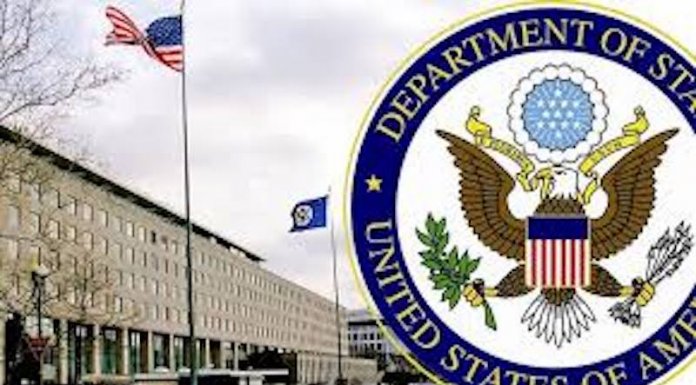The United States has described Nigeria as one of the countries lacking fiscal transparency.
A report released last Thursday by the US Department of State, said Nigeria’s budgeting process, including its contracting and licensing processes in the extractive industry, did not meet the standards required of the American government.
The report, called the 2019 Fiscal Transparency Report, covers January 1 to December 31, 2018.
It assessed the fiscal transparency of 141 national governments that receive US assistance.
Seventy-four of the 141 governments met the minimum requirements of fiscal transparency, while 13 of the 67 that fell short of the standards made “significant progress,” the report said.
Nigeria is neither among the 74 that met the minimum requirements nor among the 13 adjudged to have made significant progress.
Some of the African countries classified alongside Nigeria are Egypt, Ethiopia, and the Gambia.
Gabon, Chad, Equatorial Guinea, Togo, Tanzania, Sudan, South Sudan, Niger, Mozambique, Mali, Lesotho, and Cameroon are also among the African countries whose governments failed the US transparency assessment.
China, Saudi Arabia, Iraq, Lebanon, and Ukraine are among non-African countries that failed to meet the American government requirements.
“During the review period, the government made its executive budget proposal, enacted budget, and end-of-year report accessible to the general public, including online. The executive budget proposal and the enacted budget, however, were not published within a reasonable period of time,” the report said of Nigeria.
“Information on debt obligations was publicly available. Budget documents provided detailed estimates for revenue and expenditure but did not include allocations to and earnings from state-owned enterprises. The Nigerian National Petroleum Corporation did not have fully audited financial reports that were available to the public.
“The government maintained off-budget accounts not subject to adequate oversight or audit. Due to oil price fluctuations, actual revenues and expenditures varied significantly from estimated figures making budget documents unreliable.”
The report said, for Nigeria’s fiscal transparency to improve, the government must take the following actions:
“Publishing its executive budget proposal and enacted budget within a reasonable period of time; detailing allocations to and earnings from state-owned enterprises; improving the reliability of budget documents by producing and publishing a supplemental budget when actual revenues and expenditures do not correspond to those in the enacted budget; making full audit reports for significant, large state-owned enterprises publicly available; and subjecting off-budget accounts to adequate audit and oversight and making information on such accounts publicly available”.
The US said the report did not assess corruption, but that lack of fiscal transparency could encourage corruption.
“A finding that a government ‘does not meet the minimum requirements of fiscal transparency’ does not necessarily mean there is significant corruption in the government. Similarly, a finding that a government ‘meets the minimum requirements of fiscal transparency’ does not necessarily reflect a low level of corruption,” the report said.
The US said the report was done with inputs from international organisations and civil society organisations.
Source: This Day














